2020 年内蒙古乌海中考英语真题及答案
注意事项:
1. 本试卷共 12 页,包括第Ⅰ卷(选择题)和第Ⅱ卷(非选择题),满分 120 分,考试时间
120 分钟。
2. 答题前,考生务必先将自己的考生号、姓名、座位号等信息填写在试卷和答题卡的指定
位置。请认真核对条形码上的相关信息,将条形码粘贴在答题卡的指定位置。
3. 答选择题时,必须使用 2B 铅笔将答题卡上对应题目的答案标号涂黑,修改时用橡皮擦
干净,再选涂其他答案。
4. 答非选择题时,必须使用 0.5 毫米的黑色字迹签字笔书写,要求字体工整,笔迹清晰,
严格按题号所示的答题区域作答,超出答题区域的答案无效;在试卷、草稿纸上答题无效。
5. 保持答题卡清洁、完整,严禁折叠、损坏。严禁在答题卡上做任何标记,严禁使用涂改
液、胶带纸、修正带。考试结束后,将本试卷和答题卡一并交回。
第一部分 听力(共两节)
第 I 卷 选择题
听录音,根据各题要求选择最佳答案,并将答题卡上对应题目的答案标号涂黑。每项内容
读两遍。
第一节
听下面 5 段对话,选出与录音内容相一致的图片。
A
1.
第二节
B
2.
C
3.
D
4.
E
5.
听下面 5 段对话或独白。每段对话或独白后有几个小题,从题中所给的 A、B、C 三个选项
中选出最佳选项。听每段对话或独白前,你将有时间阅读各个小题,每小题 5 秒钟;听完
�
后,各小题将给出 5 秒钟的作答时间。
听第 6 段材料,回答下面小题。
6. What did Daniel think of his trip?
A. Relaxing and interesting
B. Exciting and enjoyable
C. Surprising and
exciting
7. Who did Daniel travel with?
A. His parents
B. His mother
C. His father
8. What did Daniel do in London?
A. He made a travel plan.
B. He bought air tickets
C. He visited famous
places.
听第 7 段材料,回答下面小题。
9. When did they start to watch TV?
A. At 9:30.
B. At 9:00
C. At 10:00
10. What kind of TV programs does the boy like?
A. Cartoons
B. Talk shows
C. Game shows
11. What will they do next?
A. Do homework.
B. Play tennis
C. Play volleyball
听第 8 段材料,回答下面小题。
12. Where does the girl work?
A. In the school dining hall.
B. In the school library
C. In the school radio
station
13. How often does Peter write to his pen pal?
A. Once a week
B. Twice a week.
C. Once a month.
14. What do they often talk about in the English Corner?
A. Games
B. Cultures
C. Places
听第 9 段材料,回答下面小题。
15. When will the speakers go to the theater?
A. On Thursday.
B. On Friday
C. On Saturday
16. Where will the speakers sit?
A. At the front
B. In the middle
C. At the back
�
17. How much is a student ticket?
A. £ 7
B. £ 10
C. £ 12.5.
听第 10 段材料,回答下面小题。
18. What festival was it?
A. It was Father's Day
B. It was Mother's Day
C. It was May D Day
19. Who swept the floor?
A. Mr. Smith
B. Mrs. Smith
C. Tom Smith
20. Where did the Smiths have dinner?
A. At home
B. In a restaurant
C. In a friend's home
第二部分 英语知识运用
第一节
从每题后所给的四个选项(A、B、C 和 D)中选出可以填入空白处的最佳选项,并在答题卡
上将该项涂黑。
1. It's nice to hear from her again. ______, we last met more than ten years ago
A. What's worse
B. Believe it or not
C. In other words
D. That's
to say
【答案】B
2. —Hello, my name is John Smith. And I' m calling to ask about the position in
your school.
—Yes, the position is still open. You could come over and have a talk ______ us.
A. with
【答案】A
B. about
C. through
D. away
3. While she was in Milan, she developed a ______ for fine art.
A. way
【答案】C
B. relation
C. taste
D. habit
4. ______ the project as planned, they need to work two more hours a day.
A. To finish
B. Finishing
C. Finish
D. To be
finished
【答案】A
5. —Tomorrow I'll take the final examination, and I feel nervous.
�
—Don't worry. It's ______ to have butterflies in your stomach before an exam.
A. rude
【答案】D
B. exciting
C. perfect
D. natural
6. He ______ sleep, although he tried to. One cup of coffee in the late afternoon
caused him to stay awake almost all night.
A. wouldn't
B. shouldn't
C. couldn't
D. mustn't
【答案】C
7. He's already playing in a band, and he only ______ playing the guitar a year ago!
A. took up
B. set up
C. put up
D. gave up
【答案】A
8. The girl used to be shy, but she is ______ getting active in team work and willing
to make friends.
A. usually
B. gradually
C. mainly
D. seldom
【答案】B
9. She says that she'll have to close the restaurant ______ business improves.
A. if
【答案】C
B. after
C. unless
D. when
10. Corn production ______ nearly 125 percent over the past 25 years in China.
B. jumps
C. will jump
D. has
A. jumped
jumped
【答案】D
11. Sophia waited for a reply, but ______ came.
A. either
【答案】D
B. another
C. neither
D. none
12. Livestreaming (直播)______ a new chance for traditional culture artists.
A. practices
B. provides
C. promises
D.
protects
【答案】B
13. Earth Day ______ in 1970 for the first time, and the Day now includes events
in more than 190 countries and regions (地区).
�
A. celebrated
B. was celebrated
C. is celebrated
D. has
been celebrated
【答案】B
14. It's not easy to change habits, ______ with strong will and self-control, it
is possible.
A. for
【答案】C
B. or
C. but
D. so
15. —Don't worry, Mom. The doctor said it was only the flu.
—______ I'll tell Dad there's nothing serious.
B. Congratulations!
C. What for?
D. I'm
A. What a relief
sorry to hear that
【答案】A
第二节
阅读短文,从短文后各题所给的四个选项(A、B、C 和 D)中,选出可以填入空白处的最佳
选项,并在答题卡上将该项涂黑。
Silent and calm, 25-year-old Linda looks out of the window. She may be smiling
now, but it's been a long, hard road to ___16___. Today, she is an author of a
best-seller and also a famous artist. Her story is about overcoming ___17___and
encouraging others to do the same.
Linda did not begin talking ___18___ she was two and a half years old. ___19___,
it was found that she had autism(自闭症)and had difficulty in social communication.
Linda's mother taught her the ___20___ of independence by example and encouraged
her to learn how to do things ___21___
Growing up, she was ___22___ bullied (欺凌).She was called an alien and some
kids would even steal her snacks. She tried changing schools, but she never seemed
to be ___23___.The bullying ___24___. She also had trouble with tests. But she didn't
let them stop her. With the help of her parents, Linda received speech and
communication treatment.
After a long period of treating, doctors said that Linda would not succeed or
�
finish her studies. But she proved (证明)them ____25____. Linda worked hard to build
up her confidence and found her ability—creating beautiful paintings. And at 18,
Linda went to art college to study painting and was later ____26____ by the local
volunteers to join them on community visits where she could ____27____ her story.
Now she has gone through the ____28____ times. And she has come to ____29____
that she is not useless. At 25, Linda sells her books and some of her paintings to
help herself and her family. By sharing her experience, Linda is not only____30____
others, but also changing their lives.
16. A. wealth
B. politeness
C. sadness
D. happiness
17. A. decisions
B. conditions
C. difficulties
D. discussions
18. A. if
B. because
C. until
D. so
19. A. Honestly
B. Unluckily
C. Clearly
D. Suddenly
20. A. progress
B. meaning
C. instruction
D. interest
21. A. by the way
B. right away
C. in a hurry
D. on her own
22. A. hardly
B. secretly
C. recently
D. seriously
23. A. welcomed
B. refused
C. treated
D. allowed
24. A. received
B. developed
C. continued
D. studied
25. A. wrong
B. right
C. clever
26. A. interviewed
B. invited
C. trusted
27. A. share
28. A. quiet
B. cover
B. dark
C. copy
C. safe
D. silly
D. tested
D. complete
D. comfortable
29. A. realize
B. guess
C. doubt
D. remember
30. A. teaching
B. saving
C. influencing
D. controlling
【答案】16. D
17. C
18. C
19. B
20. B
21. D
22. D
23. A
24.
C
25. A
26. B
27. A
28. B
29. A
30. C
第三部分 阅读理解
阅读短文,从每题所给的四个选项(A、B、C 和 D)中,选出最佳选项,并在答题卡上将该
项涂黑。
A
Find a Job This Summer
�
This summer there are things that students can do to earn some pocket money or
to help others. Also, many programs are offered by provincial government and its
partners to help students find summer jobs. Here are a few ideas.
Deliver Newspapers
Teenagers can deliver newspapers—usually you ride a bike around a neighborhood
and leave the newspaper at each house. Normally you have to have your own bike—and
you have to get up early too, because people want their newspapers to read with their
breakfast. If you are 15-18 and return to school this fall, you can find jobs of
this kind.
Wash Cars
It's crazy for adults to drive to an expensive car wash when they can get a
teenager to do the job for less money. Wash the car well and carefully and people
will want you to do it again. Then you've got customers!
Give Older People a Hand
Lots of older people are happy for teenagers to help them carry their shopping
or do small
things for them, like washing or keeping them company (陪伴). You earn
money or not, and people in the neighborhood get your help.
Job Programs
If you are a student living in certain communities of the province, you are lucky.
There are programs that provide four weeks of paid jobs along with training. After
that, you can start and run your own summer business, and you have a chance of winning
awards of up to $1000. Go to the government website to learn more about these programs.
People under 25 could build skills, find a job or start businesses all year round.
They are all great ideas. Just choose one of them to make some money. Then spend
it or save it. But don't forget it's important always to tell an adult where you
are going.
31. What is special about Deliver Newspapers?
A. It requires one to get up early.
B. It needs patience and strong
body.
�
C. It offers help to neighbors.
D. It gives training before work.
32. Which one provides training?
A. Deliver Newspapers. B. Wash Cars.
C. Give Older People a Hand. D.
Job Programs.
33. What can you learn from the passage?
A. It's hard for teenagers to find jobs.
B. The elders don't want help from
teenagers.
C. Washing cars is the best choice for teenagers.
D. Whatever you want to do,
safety comes first.
【答案】31. A
32. D
33. D
B
On a windy day in June, Fourth Class took the train to Chinatown. We had begun
to learn Putonghua and our teacher said this excursion would let us practice our
language skills and learn more about Chinese culture.
We entered Chinatown through the arched (拱形的) entrance gate with red painted
wooden pillars (柱子) . Big stone lions sat on each side. Then I noticed that the
street signs were written in both Chinese and English. I photographed the sign for
Hay Street.
The next place we visited was the Chinese Garden of Friendship which was very
peaceful. There were waterfalls, hidden stone paths and a beautiful teahouse. We
had a wonderful time there.
At last it was time for our Chinese lunch. We entered a big restaurant that had
red lanterns hanging from the roof and red dragons on the walls. The waiters greeted
us in Putonghua and we answered them in Putonghua. We were shown how to use chopsticks
and how to choose from the menus with Chinese writing.
At 2:30 we left Chinatown. We were all very tired. On the train, our teacher
told us her experience in China. She was just back from seeing the Great Wall of
China. It's like a long dragon winding its way. We were told it is the longest wall
in the world. As we were listening, one student, who I couldn't name, fell asleep
on the train and snored loudly. His face turned red when he woke up!
�
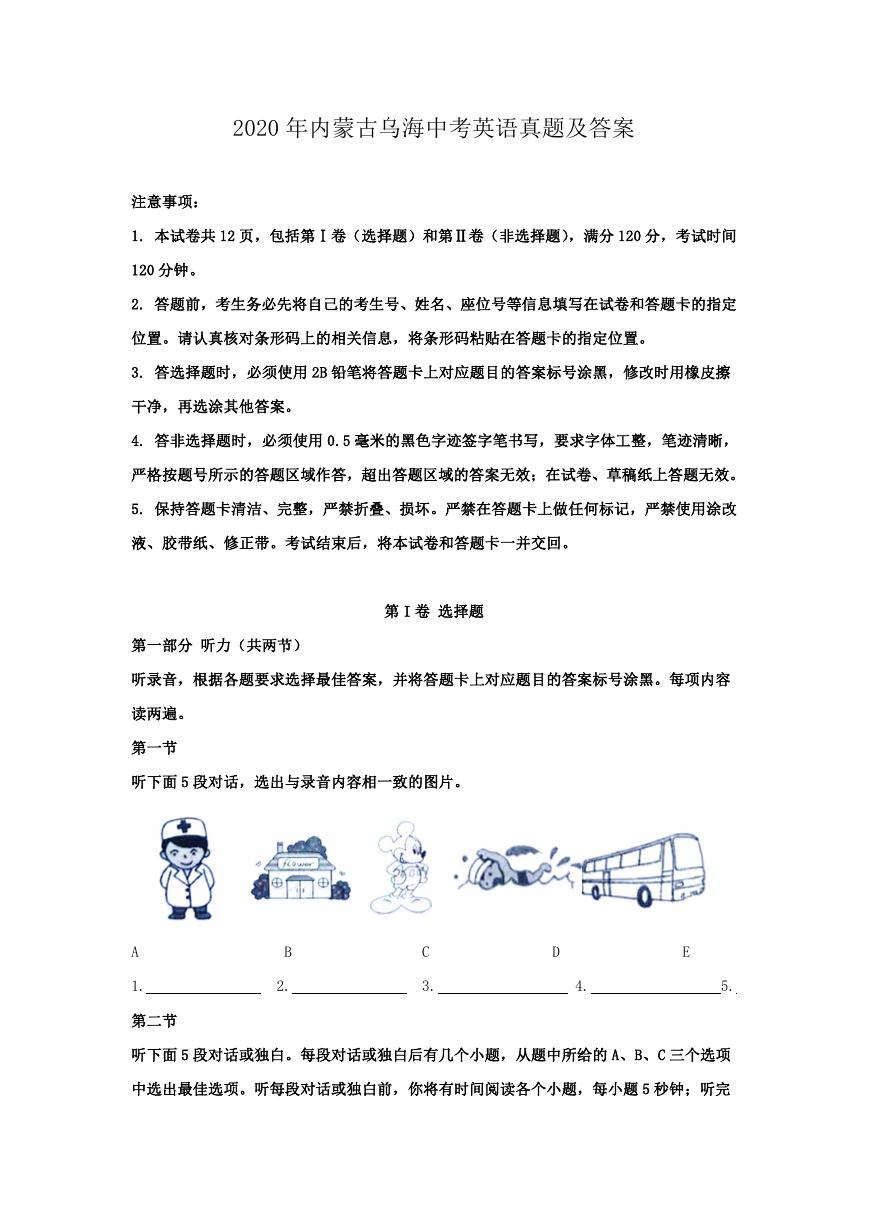
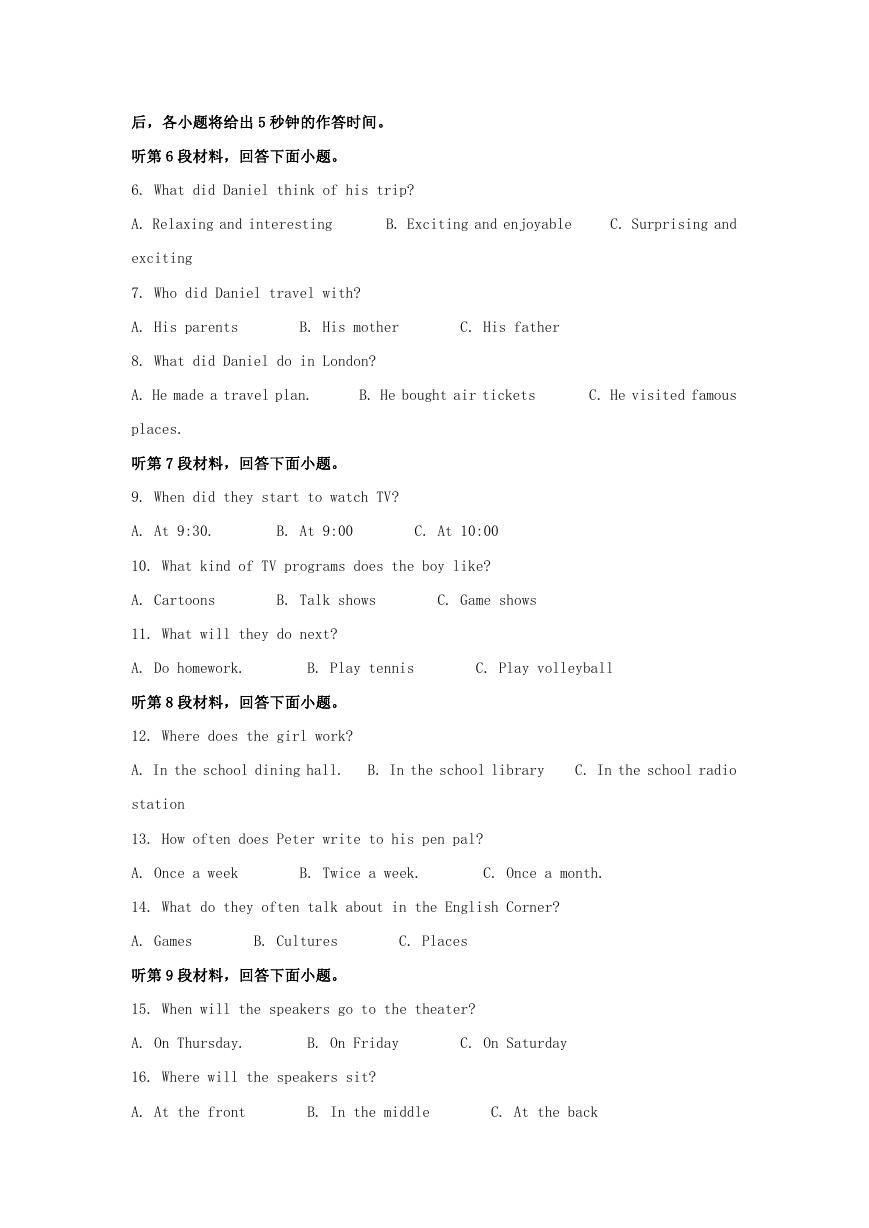
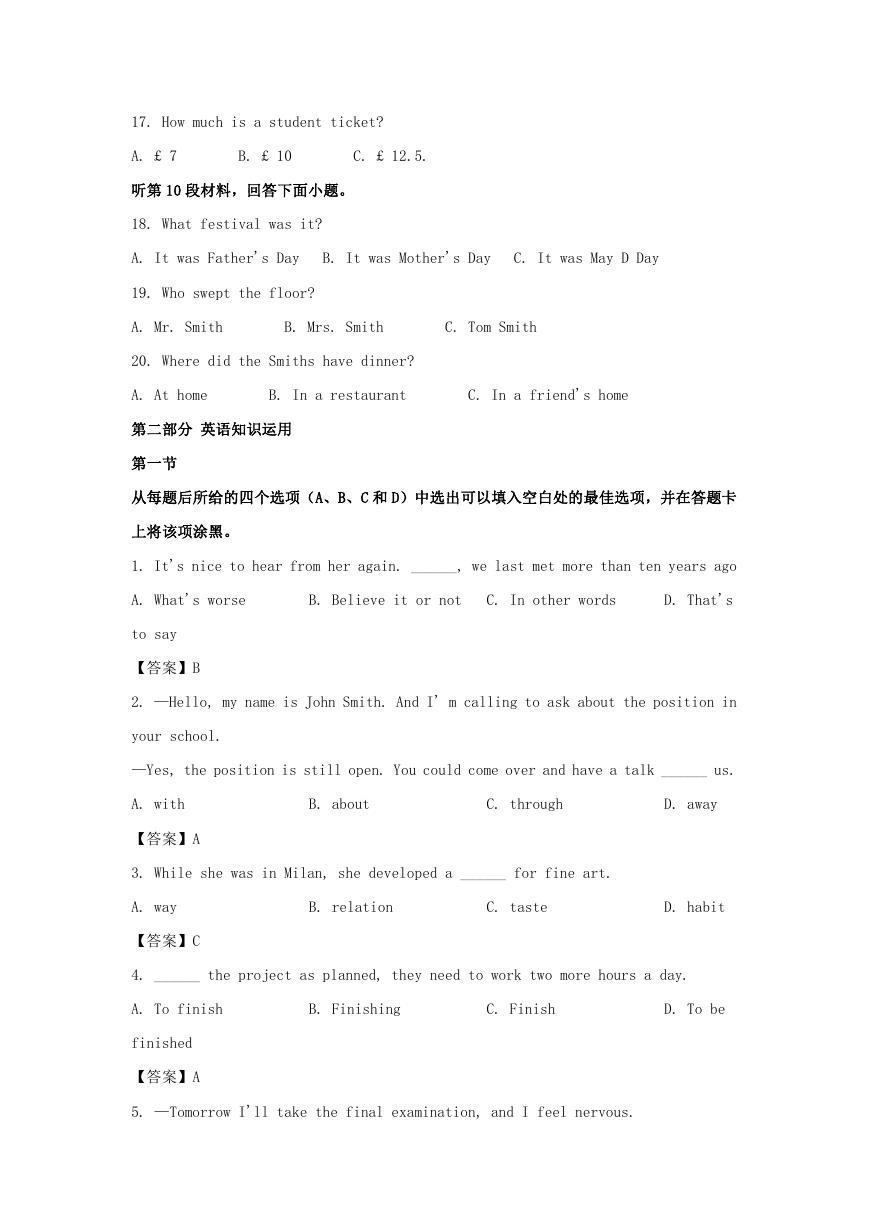
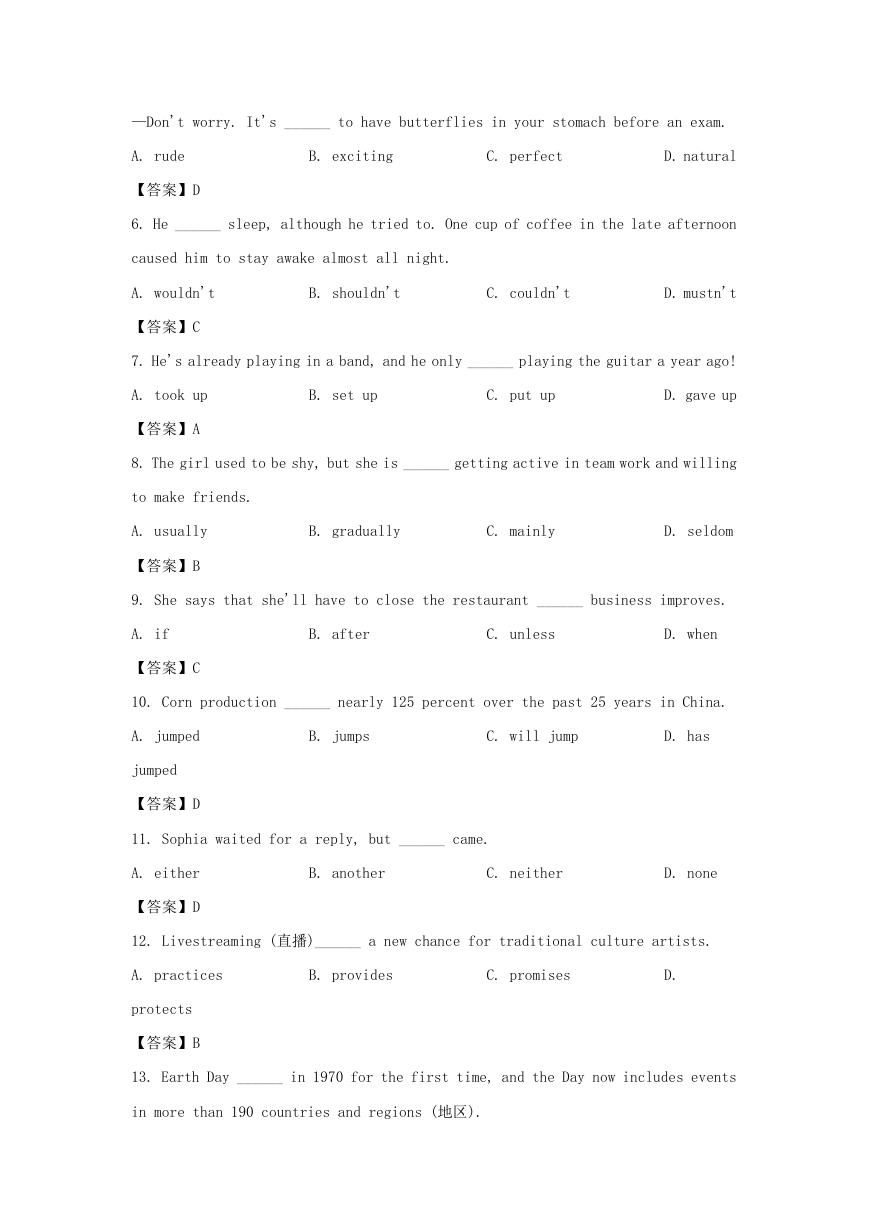
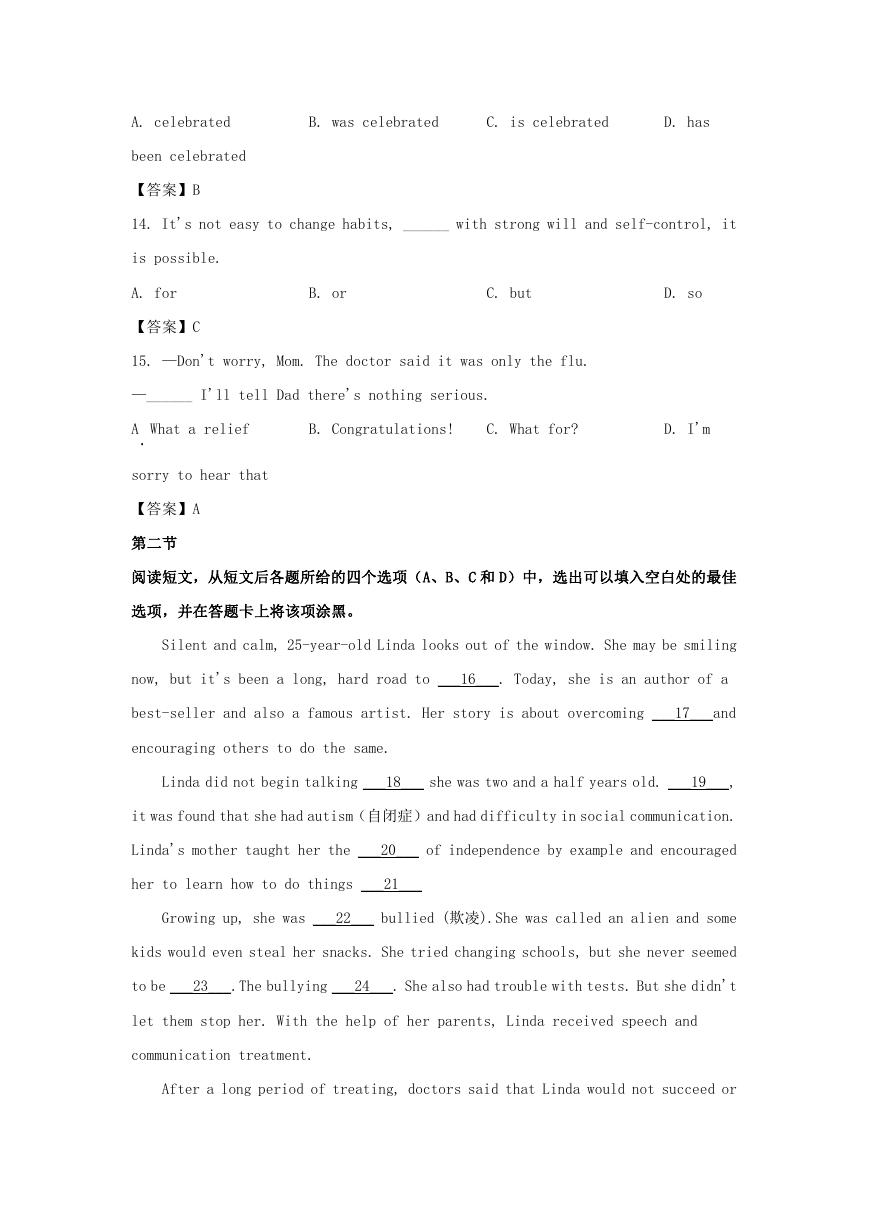
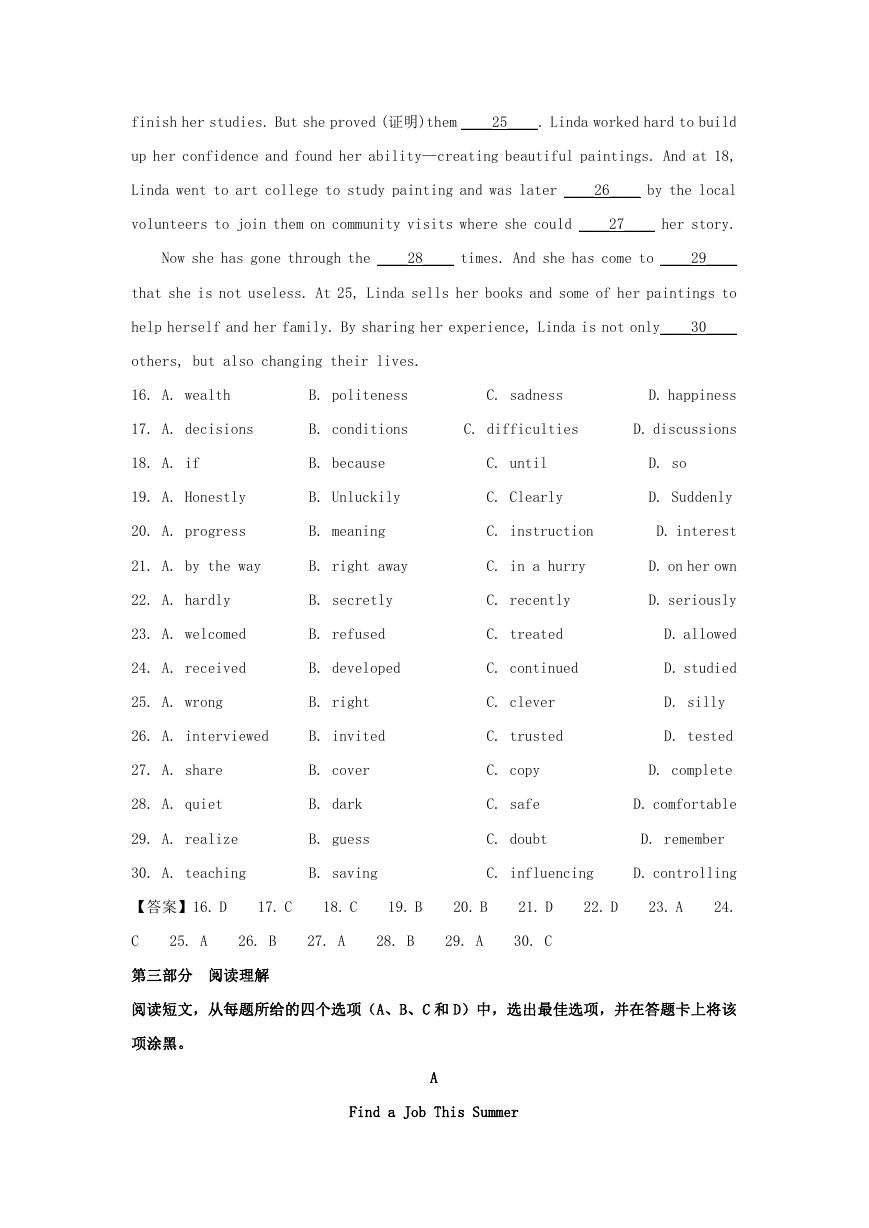
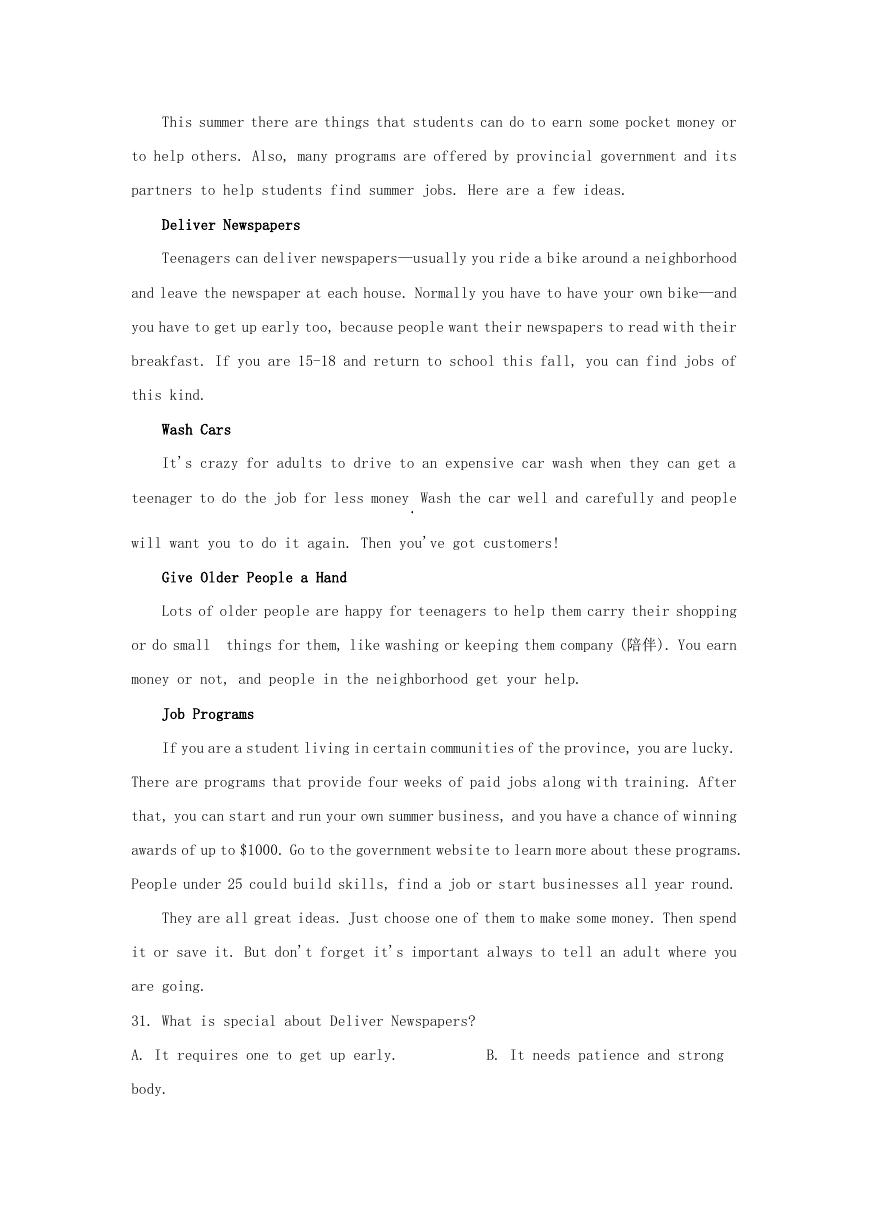
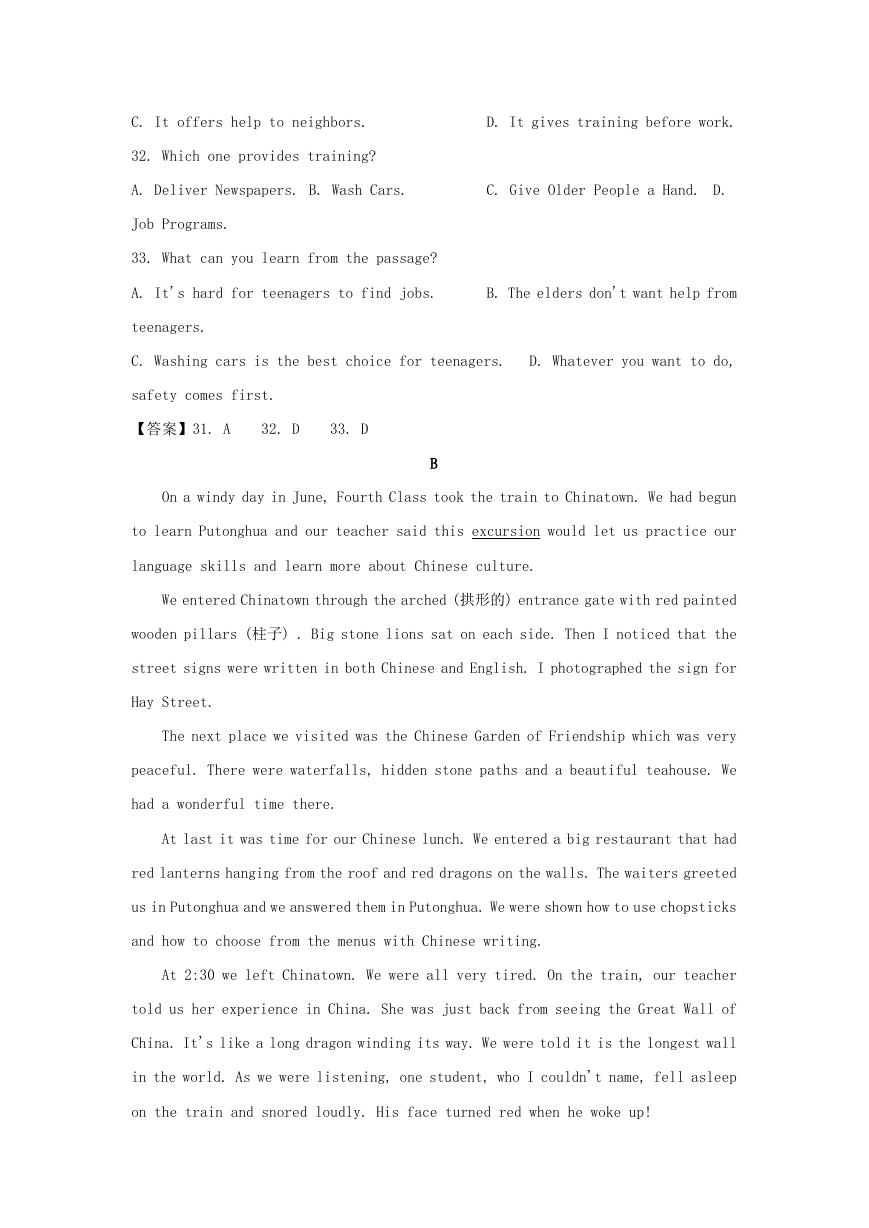








 2023年江西萍乡中考道德与法治真题及答案.doc
2023年江西萍乡中考道德与法治真题及答案.doc 2012年重庆南川中考生物真题及答案.doc
2012年重庆南川中考生物真题及答案.doc 2013年江西师范大学地理学综合及文艺理论基础考研真题.doc
2013年江西师范大学地理学综合及文艺理论基础考研真题.doc 2020年四川甘孜小升初语文真题及答案I卷.doc
2020年四川甘孜小升初语文真题及答案I卷.doc 2020年注册岩土工程师专业基础考试真题及答案.doc
2020年注册岩土工程师专业基础考试真题及答案.doc 2023-2024学年福建省厦门市九年级上学期数学月考试题及答案.doc
2023-2024学年福建省厦门市九年级上学期数学月考试题及答案.doc 2021-2022学年辽宁省沈阳市大东区九年级上学期语文期末试题及答案.doc
2021-2022学年辽宁省沈阳市大东区九年级上学期语文期末试题及答案.doc 2022-2023学年北京东城区初三第一学期物理期末试卷及答案.doc
2022-2023学年北京东城区初三第一学期物理期末试卷及答案.doc 2018上半年江西教师资格初中地理学科知识与教学能力真题及答案.doc
2018上半年江西教师资格初中地理学科知识与教学能力真题及答案.doc 2012年河北国家公务员申论考试真题及答案-省级.doc
2012年河北国家公务员申论考试真题及答案-省级.doc 2020-2021学年江苏省扬州市江都区邵樊片九年级上学期数学第一次质量检测试题及答案.doc
2020-2021学年江苏省扬州市江都区邵樊片九年级上学期数学第一次质量检测试题及答案.doc 2022下半年黑龙江教师资格证中学综合素质真题及答案.doc
2022下半年黑龙江教师资格证中学综合素质真题及答案.doc